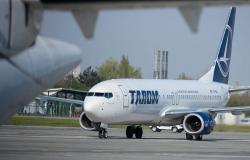
DSVSA Alba checks before Catholic Easter: Fines of over 76,000 lei. Actions continue in April to prevent food poisoning during the holidays
The Veterinary Sanitary and Food Safety Directorate (DSVSA) Alba started, from the beginning of March, the specific checks to ensure food safety in the period leading up to the Easter holidays. The main purpose of these actions is to prevent the occurrence of food poisoning during holidays for all religious communities.
Thus, the thematic checks will continue throughout the month of April, with the objective of ensuring a civilized food trade during the Orthodox Easter holidays. DSVSA Alba inspectors are present in the field, monitoring the way in which the conditions of storage, handling and marketing of food are respected, to avoid the risk of illness caused by the consumption of non-compliant products.
In the period leading up to the Roman Catholic Easter, 233 control actions were carried out, as a result of which 36 contraventional sanctions were applied in the total amount of 76,800 lei, as well as 4 written warnings.
The main non-conformities detected:
– non-compliance with the rules established by the Veterinary Sanitary and Food Safety Authority regarding the maintenance of food processing, storage and utilization spaces, as well as the installations, machines and work utensils used;
– improper packaging and labeling of food products, in order to store, transport and utilize them, and selling them unlabeled according to the legislation in force;
– the handling of food products in violation of veterinary sanitary and food safety rules;
– violation of veterinary sanitary and food safety rules regarding the demonstration of product traceability in the production, processing, distribution, marketing or sale of food;
– structural deficiencies;
– improper storage of food products (packaged food products stored in boxes directly on the pavements).
The controls continue to monitor the observance of veterinary sanitary conditions and food safety in all agri-food markets, slaughterhouses and slaughter centers with temporary activity, meat cutting units, animal food processing and storage units, as well as in retail units (grocers, butchers, public catering units, pizzerias, canteens, catering units, confectioneries, patisseries, confectionery/pastry laboratories, tourist hostels, hypermarket/supermarket units, grocery stores, etc.).
We advise all consumers to purchase products only from authorized and registered sanitary-veterinary and food safety premises because they are subject to specialist checks and have a consumer guarantee. Those who buy products, preparations and different foods from individuals, who sell them on classifieds sites or on social networks, expose themselves to an imminent risk of illness and do so at their own risk.
Thus, in order to avoid possible episodes of food poisoning, we recommend purchasing traditional products, cakes, cakes, appetisers and lamb dishes, etc., only from registered establishments, not from unauthorized individuals.
Individuals or legal entities, who sell food products in unapproved sanitary-veterinary and food safety premises, risk high contraventional sanctions.
The controls are carried out because we want the public catering units and operators in the food industry to respect the sanitary and veterinary conditions, the hygienic conditions in which the food products are produced, stored, transported and used, and that there are no food poisoning during this period.
Food sector operators in retail units of animal and non-animal products must ensure that the products obtained and sold to the final consumer do not pose a risk to public health and that all the conditions established by the legislation in force regarding: labeling are met ; ensuring traceability; quality and safety parameters of raw materials and finished products; water potability control; staff training; health control; elimination of pests (insects, rodents, birds, etc.); waste disposal; maintenance and hygiene of spaces and equipment; the application of good hygiene practices procedures, based on the principles of food safety established by the guidelines of good practices in the case of agricultural producers raising animals or, as the case may be, the principles of the Risk Analysis and Identification of Critical Control Points (HACCP) system, taking into account see the type of unit, the production capacity and the specifics of the unit.
Special attention will be given to lamb, eggs and egg products, milk and milk products, respectively other traditional products that are consumed during the Easter holidays.
Control actions will take into account how the following requirements are met:
For the lamb:
– lots of lamb meat are delivered from slaughterhouses and are accompanied by a sanitary-veterinary certificate;
– lamb meat resulting from slaughtering in temporarily arranged spaces (if applicable), is obtained only at the direct request of consumers and only after carrying out ante and post mortem examination, and cannot be delivered, with a view to commercialization, to other units in the field food, registered/authorized sanitary and veterinary;
– the marking of lamb carcasses is carried out in compliance with the legal provisions, regarding the marking and sanitary-veterinary certification of fresh meat and the marking of products of animal origin intended for human consumption;
– the marking of lamb meat, resulting from slaughtering in temporarily arranged spaces, is carried out with a special health mark of a round shape with a diameter of 3.5 cm, inside which the code of the county is written, followed by the numerical code granted by DSVSA Alba
– the storage and sale of lamb meat must be carried out in appropriate spaces, ensuring the appropriate temperature and hygiene;
– temperature compliance during transport for refrigerated or frozen lamb meat.
For eggs and egg products intended for human consumption:
– producers and traders who use eggs for human consumption, producing farms and egg packing centers must be sanitary-veterinary authorized/registered, according to the sanitary-veterinary legislation in force;
– eggs must be transported only in sanitary-veterinary authorized vehicles, and during the entire period of storage and marketing, the appropriate temperature and hygiene must be ensured;
– the eggs must be marked with the producer’s code and come from authorized egg packing centers, in accordance with the provisions regarding the marketing standards applicable to eggs;
– the sale of eggs with a cracked and/or damaged shell is prohibited, they will be withdrawn from sale and, subsequently, sent to a neutralization or technical processing unit;
For milk and milk products:
– small producers, who sell milk and cheeses in agro-food markets and fairs, must be sanitary-veterinary registered, according to the provisions of ANSVSA Order no. 111/2008;
– raw milk, which is intended for direct sale or processing into cheeses, must come from healthy animals, raised in authorized/sanitary-veterinary farms/holdings and free from diseases that can be transmitted to humans through milk, and dairy products;
– small producers, who sell raw milk and milk products directly to the final consumer in agro-food markets and fairs, must have health cards for the animals from which the milk comes, according to the above-mentioned Order;
– the cheeses intended for sale by small producers must be displayed for sale in specially designed spaces in agri-food markets and fairs, in showcases intended for this purpose, in containers (trays) made of non-corroding materials, easy to clean and sanitize (plastic, ceramic, stainless steel, etc. );
– the cheeses must be properly protected against contamination during transport and exposure to sale to the final consumer (for example: in plastic containers, plastic bags, etc.);
– if the transport and storage of cheeses, with a view to direct sale to the final consumer, is carried out in traditionally made wooden containers (putini), they must be clean and properly identified, to ensure the traceability of the products and prevent contamination;
– the marketing of cheeses in agro-food markets and fairs will be done only in appropriate, disposable packaging (food plastic bags, food waxed paper, etc.), or other types of properly cleaned and sanitized containers;
– the traceability of milk and cheeses obtained by small producers must be ensured, by using identification/labeling methods, which contain mentions of the name of the product, the name of the producer, the place of production, the date of production, such as:
– applying adhesive labels to the transport or unpacking packaging;
– the use of printed bags;
– the display, at the time of exposure for sale and throughout the commercialization period, of some information written on tablets and/or panels applied above or next to the presented product, etc.
Other traditional food products: muffins, cakes, bakery products, seasonal vegetables, etc. they can be marketed in facilities arranged and registered or authorized sanitary-veterinary, under the control of the specialist staff of DSVSA Alba.
News section below the main article
Follow Ziarul Unirea and on GOOGLE NEWS
The latest news published in Ziarul Unirea
- DSVSA Alba checks before Catholic Easter: Fines of over 76,000 lei. Actions continue in April to prevent food poisoning during the holidays
- JOBS in Alba county, on APRIL 2, 2024: 508 positions are available in Alba Iulia, Aiud, Câmpeni, Ocna Mureș, Sebeș and Teiuș
- Wednesday and Thursday, round of 16 of the Romanian Cup, county phase | Interesting matches, Hidro Mecanica Șugag – Viitorul Vama Sacă, duel with repetition
Tags: DSVSA Alba checks Catholic Easter Fines lei Actions continue April prevent food poisoning holidays
-




